Newsletter GLP Food & Ag

GLP podcast/video: ‘Industrial’ seed oils unhealthy? A mom’s guide to anti-GMO myths; Opposites actually don’t attract
Are so-called "industrial" seed oils slowly killing us? Probably not. One mom and farmer says other parents shouldn't be scared ...
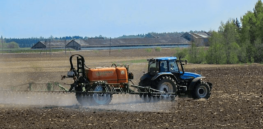
Video: Are synthetic pesticides harmful to the environment and human health? Here’s a nuanced review of the science
Starting with the premise that any substance can be poisonous depending on the dose, Josh Gilder, founding partner of Reach ...

‘Museum of Agriculture’? Could that be the fate of European farming if Greenpeace and other environmental activists succeed in blocking deregulation of crop gene editing?
The war between science and anti-crop biotechnology advocacy groups has escalated since the summer release of the European Commission Report ...

GLP podcast: Lab-grown meat bad for the planet? California’s backwards pesticide rules; Presidential debates should focus on farm policy
Recent research shows that lab-grown meat may not live up to its environmental hype, requiring far more energy than its ...

Viewpoint: Many web-surfing gardeners are concerned about the scary claims they read online about the herbicide glyphosate. An independent university weed scientist addresses the controversy
I did a class for the Cypress Landing community a few weeks back and one of the questions was about ...
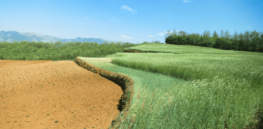
Four ways to strip carbon out of agriculture and limit farming’s climate impacts
Carbon is a “hot topic” in an age of Climate Change (pun intended). That is playing out in unique ways ...
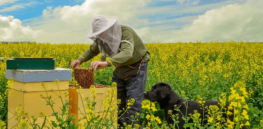
Insects are disappearing from UK farms. Why, and what can be done?
Insect populations are declining worldwide at a rate of almost 1% per year. This decline is alarming. Insects play a ...

Pesticides and Food: It’s not a black or white issue — How do organic pesticides compare to synthetic pesticides?
Many consumers choose to buy higher-priced organic produce because they believe organic foods are not grown using pesticides and therefore ...

GLP podcast and video: Hawaii’s wildfires explained; Why more young people are getting cancer; Aspartame hysteria could boost sugar intake
Invasive grasses are the key to unraveling the cause of Hawaii's devastating wildfires, according to a local expert examining the ...

Viewpoint: ‘Garbage in, garbage out’ — How AI is already skewing news coverage of complicated science issues like the safety of glyphosate
Here's a great example of how bad reporting and the war on glyphosate play hand-in-hand. I don't know anything about ...
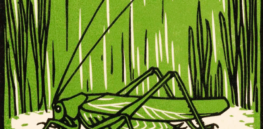
Grasshoppers under siege: Here’s how climate change depletes insect populations and threatens the global food supply
It’s tough out there for a hungry grasshopper on the Kansas prairie. Oh, there’s plenty of grass to eat, but ...

Sequestering carbon on a gigaton scale: How gene editing can address climate change by reducing atmospheric emissions
Hardly a day goes by without another piece praising the potential for gene editing to help solve climate change. Nevertheless, the possible contributions of biology and biotechnology have been conspicuously ...
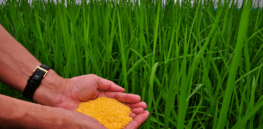
Viewpoint: From ‘Save the Whales’ to ‘Let Children Go Blind’ — Greenpeace’s descent into science rejectionism
From the early days of Greenpeace when its members were dodging harpoons and Japanese whalers in outboard motor boats – ...
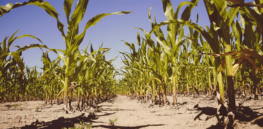
Green transition: How agriculture can drive climate change solutions
It is widely recognized that we must transition our energy economies to a greener, more sustainable state. This will only happen ...

Insect-resistant Bt GMO crops have helped cut pesticide use. Now Nature is pushing back
In 2006, a small airplane started buzzing each cotton field in Arizona, a thin, dust-like cloud trailing behind it. The ...

Pesticides and Food: It’s not a black or white issue — Part 5: Soil health ― When synthetic pesticides are more sustainable than ‘natural’ organics
Most consumers believe organic farming avoids pesticides and prioritizes the health of the environment more than conventional farming. However, this ...

Viewpoint: Scotland’s Green Party leads an “obstinate and visionless” opposition to sustainable gene edited crops while UK and Europe edge towards embracing agricultural science
In recent months, the pace of global policy developments in relation to gene editing has often been hard to keep ...

Viewpoint: How to restore public trust and regulatory fairness in the face of aggressive, coordinated disinformation efforts by anti-technology environmental activists
During my lifetime, Western societies have enjoyed innovations that have immensely improved public health and the quality of life as ...
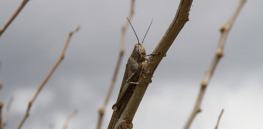
Why we overeat — and how studying voracious locusts may help us learn to curtail a dangerous human vice
This story starts in an unusual place for an article about human nutrition: a cramped, humid and hot room somewhere ...

Training our taste buds: How genes and diet shape our food preferences
Have you ever wondered why only hummingbirds sip nectar from feeders? Unlike sparrows, finches and most other birds, hummingbirds can taste ...

Should University Agricultural Research Scientists Partner With Industry?
Studies show research on GE crops is not significantly influenced by conflicts of Interest. However, it is important to remain ...

Viewpoint: Anti-agrobiotech activists claim European farmers who support relaxing the EU’s de facto ban on cultivating GMO and gene-edited crops are dupes of Big Ag. Here are the facts
Staunch opponents of the agricultural biotechnology revolution spin a narrative that large agribusiness have strong-armed governments to approve genetically modified ...
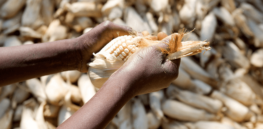
Africa faces the world’s largest food and hunger crisis. Why then are Africans so skeptical of genetically modified crops that could produce more and healthier food
Hunger and undernourishment are two elements of food insecurity that have plagued Africa for years. And the menace is growing ...
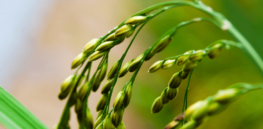
5x increase in rice yields? New CRISPR-created variety could help fight fungal pandemic decimating world’s rice crop
Thanks to CRISPR, farmers may finally have a good defense against rice blast, a fungal disease so devastating, it’s known ...
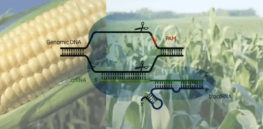
Viewpoint: EU gene-editing regulations requiring traceability and labeling to ‘protect co-existence’ with organic crops could stop innovation in its tracks
Major new developments in gene editing are now taking place with increasing frequency, as the world looks to harness the ...
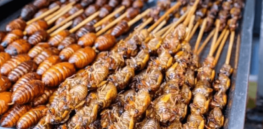
Meet the beetles: Mealworms could be a food of the future
I have a special fondness for the yellow mealworm, Tenebrio molitor. As a child, I fed the mealworm stage of ...
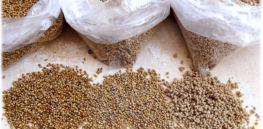
Growing more ancient grain millet could help American farmers adapt to climate change
The Midwest is known for its rows and rows of corn and soybeans that uniformly cover the landscape ...

